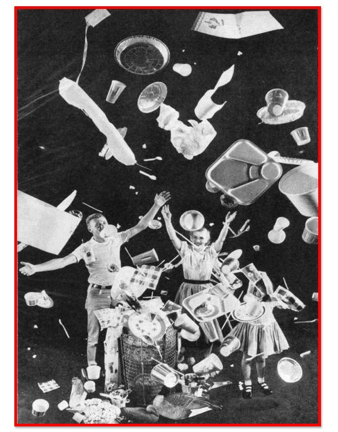Plastic is the substance that has served as our most perfect container – and that now overwhelms our systems of containment.
Robert Macfarlane, Underland
Along with friends from the Longridge Environment Group I had the opportunity to co-view the Story of Plastic film recently courtesy of Chester and District FoE. The film was scheduled for box office cinema release but the Corona Virus has put paid to that.
The Story of Plastic travels around the globe, with time spent speaking with plastic sorters and zero waste activists mainly in Asia, and exposes a world wide seemingly unsurmountable catastrophe driven by corporate interests.
My overall feeling was that Plastic is one big social justice issue, that recycling is flawed. (Only 91% of plastic is effectively recycled) and that we really do need to understand the whole plastic life cycle story. In particular, understand how the fossil fuel and big chem industry is grooming those countries with poor waste facilities and regulations, with the false promise of a better world of plastic. This is in much the same way we in the west were groomed, way back in the 50’s and have been since, with promises of a throw away world, a world of Tupperware and of no more washing up.

A biochem corporate voice in the 50’s promoting plastic promise’s us ‘the best is yet to come’
The Story of Plastic exposes the sham of recycling, that the whole life cycle of plastic is only possible because we have poverty to deal with our throw away culture. Enabling us to make room for more. Whilst seemingly complying with laws in the west, there is disregard for environmental responsibility elsewhere – for example shampoo sold in ‘recyclable’ bottles here (for which manufacturers contribute towards recycling) – but is sold in un-recyclable sachets in Indonesia (prohibited in the west and for which manufactures make no contribution on cleaning up)
Maybe we have focused too narrowly on reducing and eliminating single use plastics – the use once and last forever plastics – such as straws, coffee stirrers and bottles, and so our actions need to go deeper.
The film concludes with hope, with respair emerging from the despair, in the shape of EPR, Extended Product Responsibility and a Circular Economy, soon to be embedded in EU and hopefully UK legislation, to varying degrees and effectiveness. Such legislation cannot come soon enough, and needs to be global.
One of the first sustainability pecha kucha presentations I made some 10+ years ago, entitled Waste is Stupid, looked at the ‘Design Requirements’ made in Cradle to Cradle (and then borrowed for FutuREStorative some ten years later) concluding with what if we could rethink the way we made things, what if construction generated no plastic waste, and what if we had no toxic (Red List) materials in our buildings. Sadly 10 years on we need to ask the same questions
Alongside this viewing I am currently re-reading Underland, A Deeptime Journey by Robert Macfarlane as part of the Emergence Magazines book reading club. Macfarlane makes a number of comments on plastic, but the most striking and concerning, is how will we be looked upon by future generations in a future deeptime, when the surviving strata level, unearthed by future archaeologists, representing our age is one of plastic, and as Macfarlane asks, Are we good ancestors?
Philip Larkin famously proposed that what will survive of us is love. Wrong. What will survive of us is plastic,
Robert Macfarlane, Underland
Story of Plastic Trailer Link
The Longridge Environment Group have a showing of The Story of Plastic on the 27th May
